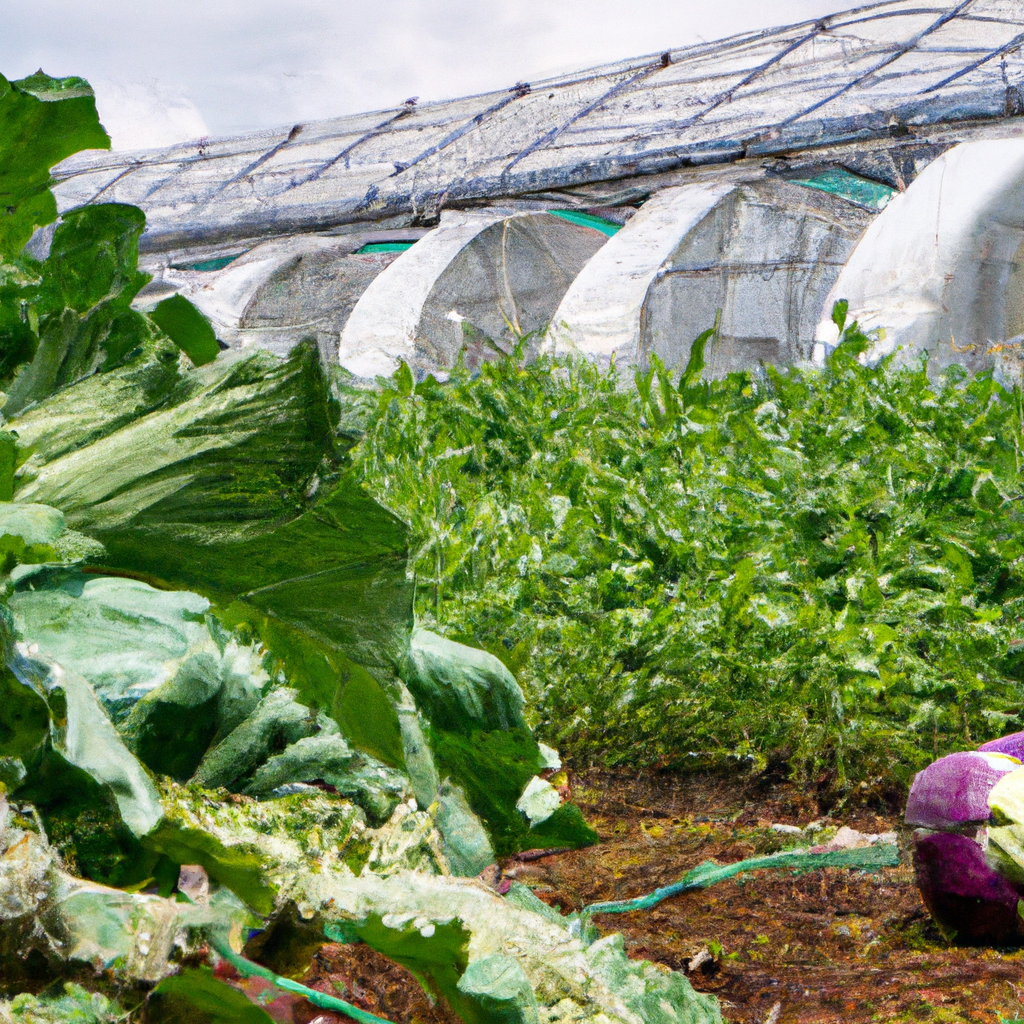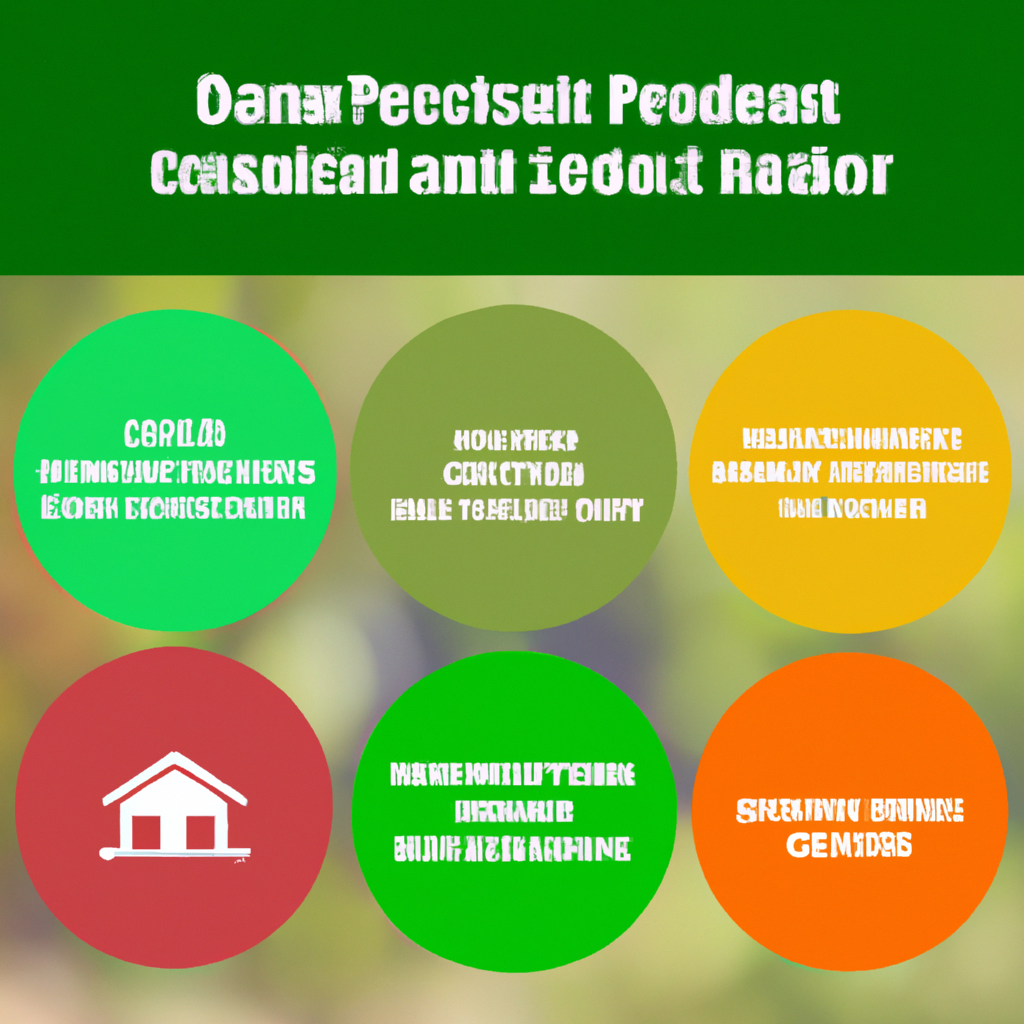
Urban farming has become increasingly popular in recent years as people seek to reconnect with nature and have a sustainable source of fresh produce. However, with the rise of urban farming comes the need for effective pest control. Pest control plays a crucial role in ensuring the success and viability of urban farms by protecting crops from pests and diseases. In this article, you will explore the importance of pest control in urban farming and discover strategies to effectively manage and prevent pest infestations. Whether you are an urban farmer or simply interested in the topic, this article will provide valuable insights into the world of pest control in urban farming.
The Importance of Pest Control in Urban Farming
Urban farming, also known as urban agriculture, is the practice of cultivating and producing food in urban areas. As the world’s population continues to grow, urban farming has become increasingly important in providing sustainable and locally grown food. However, like any form of agriculture, urban farming faces challenges, with pests being one of the most significant. Effective pest control plays a crucial role in ensuring the productivity and sustainability of urban farms.

Types of Pests in Urban Farming
Urban farming environments can attract a wide range of pests. These pests can include insects, rodents, birds, and even larger animals like raccoons or deer. Insects such as aphids, caterpillars, and beetles can damage crops by feeding on leaves, fruits, or the roots. Rodents like rats and mice can destroy crops by eating the seeds or gnawing through the stems. Birds can also pose a threat by pecking at fruits or scavenging seeds. Identifying the pests specific to each urban farming location is essential to develop effective pest control strategies.
Impact of Pests on Urban Farming
Pests pose significant threats to urban farming operations. They can cause direct damage to crops, resulting in reduced yields, lower-quality produce, or even complete crop loss. This can lead to financial losses for farmers and difficulty in meeting the demand for locally grown food. Pests can also introduce diseases to plants, which further exacerbates the damage to crops. Additionally, pest infestations can impact the overall health and ecosystem of urban farming environments, disrupting the delicate balance between plants, insects, and other organisms.

Factors Contributing to Pest Infestations in Urban Farming
Several factors contribute to pest infestations in urban farming. One major factor is the proximity of urban farms to other sources of pests, such as overgrown vacant lots or nearby buildings with infestations. Lack of proper sanitation and waste management can also attract pests to urban farming areas. Climate conditions, such as high humidity or warm temperatures, can create favorable environments for pest reproduction. Furthermore, monoculture practices and the use of synthetic fertilizers can weaken plants’ natural defense mechanisms, making them more susceptible to pest attacks.
Benefits of Effective Pest Control in Urban Farming
Implementing effective pest control measures in urban farming brings numerous benefits. Firstly, it helps maintain or increase crop yields and quality. By managing pests, farmers can prevent or minimize damage to their crops, ensuring they can meet the demand for locally produced food. Effective pest control also contributes to environmental sustainability by reducing the need for chemical pesticides and their potential harmful effects on ecosystems. Additionally, pest control helps create a healthier and safer working environment for farmers and consumers alike.

Sustainable Pest Control Methods for Urban Farming
When it comes to pest control in urban farming, adopting sustainable methods is essential. These methods focus on minimizing the use of harmful chemicals and instead promoting the preservation of natural ecosystems. Integrated Pest Management (IPM) is a widely recognized approach that combines various pest control strategies to effectively manage pest populations while minimizing the impact on the environment. IPM includes the integration of biological, organic, and chemical control methods, as well as preventive measures.
Integrated Pest Management (IPM) Approach
Integrated Pest Management (IPM) is a holistic approach that emphasizes the use of multiple pest management techniques. It involves monitoring pest populations, identifying pest species, and determining the most appropriate control methods based on the specific situation. IPM promotes preventive measures, such as crop rotation, planting pest-resistant varieties, and using physical barriers to deter pests. By combining different pest control techniques, IPM aims to reduce the reliance on chemical pesticides and create a more sustainable farming system.

Biological Pest Control Methods
Biological pest control methods utilize natural predators, parasites, or pathogens to control pest populations. These methods involve introducing beneficial organisms, such as lady beetles or lacewings, which feed on pests like aphids. Bacillus thuringiensis (Bt), a naturally occurring bacteria, can also be used to target specific pests. By capitalizing on nature’s own pest control mechanisms, biological methods offer long-term pest management without harmful effects on the environment.
Organic Pest Control Methods
Organic pest control methods prioritize the use of natural products and practices to manage pests. These methods involve using organic-approved pesticides, such as neem oil or insecticidal soaps, which are derived from natural sources and have low environmental impacts. Implementing preventive measures like crop rotation, maintaining healthy soil, and providing proper irrigation can also help reduce pest infestations. Organic pest control methods align with sustainable farming practices and help protect the integrity of the urban farming ecosystem.

Chemical Pest Control Methods
Although the focus is on sustainable and organic methods, chemical pest control still has its place in urban farming. When used judiciously and as a last resort, chemical pesticides can effectively control severe pest infestations. However, it is crucial to prioritize the use of low-toxicity pesticides and to follow proper application techniques to minimize their environmental impact. Integrated with other pest control methods, limited use of chemical pesticides can be part of an overall effective pest management strategy.
Preventive Measures for Pest Control in Urban Farming
Preventing pest infestations is often more effective and sustainable than attempting to control existing ones. Implementing preventive measures in urban farming plays a crucial role in reducing the risk of pest problems. Practices such as regular crop inspection, removing plant debris, and proper waste management help eliminate potential pest habitats. Crop rotation, intercropping, and companion planting can also help disrupt pest life cycles and prevent the build-up of pest populations. Investing in education and training for urban farmers regarding pest management techniques is equally important in maintaining healthy and sustainable urban farming practices.
In conclusion, pest control plays a vital role in the success and sustainability of urban farming. Effective pest control methods help minimize crop damage, maintain productivity, and ensure the availability of locally grown food. By adopting sustainable pest control practices, such as Integrated Pest Management (IPM), biological methods, and organic approaches, urban farmers can manage pest populations while preserving the environment. Preventive measures and proper education contribute to the overall health of urban farming systems, creating thriving and resilient urban agricultural communities.





